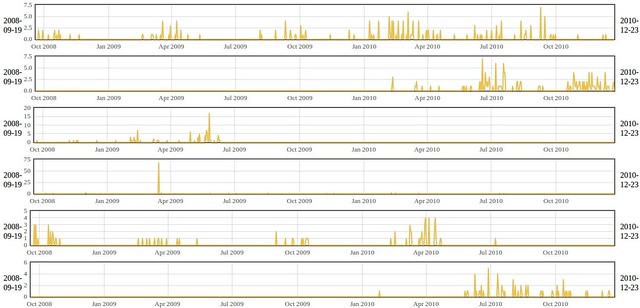A few weeks back I [wrote about my desire to make Ubuntu feel more personal](https://archivedblog.jonobacon.com/2011/01/07/making-ubuntu-more-personal/) for new and existing contributors. The goal here is to help community members to have a fulfilling experience in which there is a very personal sense of engagement (i.e. people care about your specific contributions and experience with Ubuntu).
I wanted to share some work that we have been doing along these lines to not only show you kind of focus we are trying to take, but to also hopefully inspire some of you to take a similar interest in achieving the same kind of personal experience.
This project started when [Daniel Holbach](https://daniel.holba.ch/blog/) and I were discussing how to reach out to prospective developers better to give them a helping hand. One thing that struck us was that we didn’t have particularly good visibility on the timeline of someone’s contribution as a developer. Sure, we knew folks who would reach out to us for help and assistance, we knew people who would come to UDS, and we knew active contributors in `#ubuntu-devel`, but we suspected these folks were only part of the picture. Many people contribute to Ubuntu and we often don’t know some of them, let alone have an idea of their work so far.
Part of the goal here is to have better visibility on what someone has done so we can reach out and guide folks through their Ubuntu development adventure. The concept of a *significant and sustained* contributions has always been at the heart of how we assess our contributors for membership and upload access to our repositories, but it is often difficult to get a real feel for the *sustained* part. Daniel and I were keen to resolve this and get a better overview of people going through our developer programme and how much work they have performed.
To this end, we fleshed out a plan to programmatically generate a series of graphs for everyone who who was using the [Ubuntu Sponsorship Queue](https://wiki.ubuntu.com/SponsorshipProcess) to get their work in Ubuntu (in other words, prospective developers asking current developers to review their work and upload it), and then use this graph as a means to see the commonality of their contributions and how sustained they are.
Daniel put together these graphs by parsing upload emails and and the graph looks like this:

This is how it works:
* Each individual graph shows a different contributor who is currently using the sponsorship queue to get their work in Ubuntu.
* Each graph has the same start and end date (19th Sep 2008 – 23rd Dec 2010).
* Each spike shows the number of *accepted* uploads made to the archive (i.e they had an upload successfully sponsored by a developer). Please note: unlike the X axis in the graph, the Y axis does not share the same scale (e.g. the top graph ranges from 0 – 7.5 contributions and the bottom is 0 – 6).
So what do these graphs tell us? Well, they give us a *reasonable* indication of those people who are actively contributing to Ubuntu in a significant and sustained way. This page gives us an opportunity to instantly look at all the people currently engaging with the sponsorship queue and see their contribution history. This enables us to do a number of things:
* Reach out to those people who have been clearly performing *significant and sustained* contributions and ask them if there is anything we can do to help, give them encourage and respect, and otherwise make their experience more pleasant and encouraging.
* It can sometimes be difficult for a prospective developer to know when they should apply to be a MOTU or core-dev. This provides us with a useful resource to see *significant and sustained* contributions and recommend those developers to apply for developer approval.
* It gives us a chance to see commonalities of spikes of activity and dips in activity and to see what those causes are.
When the graph was in place and looked over it, I asked Daniel to start reaching out to different people to offer this help and guidance and already we have seen some wonderful results. These folks seem genuinely happy that we have reached out to them, and here are two examples of their feedback:
>”Thanks for getting in touch, much appreciated and shows how Canonical cares about its community.”
>”I appreciate your direct correspondence, this kind of stuff is what sets Ubuntu apart.”
This is exactly the kind of sense of personal care that I am keen for us to grow in the project. I want to say a huge thankyou to Daniel for his efforts on this, and I am looking forward to suggestions for other areas in which we can build a more personal and human Ubuntu experience.








